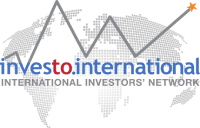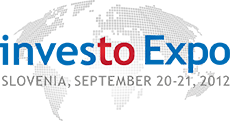This week, the European Federation of Investors and Financial Services Users (Better Finance) published a series of opinions, proposals, and measures that have been drawn up by investor associations from all around Europe. With this, they are aiming to provide clear information and guidance for individual investors and financial services users across all EU Member States. The European Federation of Investors (VZMD is one of the founding members) warns that the COVID-19 pandemic in connection with its emergency confinement measures has severely disrupted capital markets. As a result, EU citizens as investors and savers are feeling the immense pressure, and will be among the first in line to suffer from the economic and financial fallout that will undoubtedly ensue following the large array of different financial measures taken by governments and financial institutions.
Therefore, Better Finance joined by the Federation of European Stock Exchanges (FESE) and other major stakeholders is sending an open letter to European decision makers to emphasize the importance of keeping European regulated capital markets open during these extraordinary times. The markets continue to serve the needs of participants to raise capital, manage investments, access cash and manage risk that affects both retail and institutional investors. Closing them would have a devastating impact on the EU economy.
The warnings coming from the majority of national associations in the EU are directed at shareholders annual general meetings and dividend pay-outs. While the VZMD calls on Slovenian public companies to hold general meetings online and enable shareholders discussion and voting, the Deutsche Schutzvereinigung für Wertpapierbesitz (DSW) stresses the importance of not canceling annual general meetings for shareholders, but merely postponing them. If companies move general meetings online instead, they should provide shareholders the possibility to ask questions and vote. At the DSW, they warn against using the new law that enables companies to hold a purely virtual AGM in 2020 as a model to restrict shareholders’ rights also after the crisis.
Similarly, The Danish Shareholders Association, Dansk Aktionærforening (DAF) strongly supports the holding of AGMs online and encourages all listed companies to organize shareholder meetings for private investors afterwards. In addition, DAF appeals to companies to inform on the consequences of COVID-19 as part of shareholder democracy and shareholders rights, and encourages the Danish Parliament to substantially increase the tax-supported shareholding-scheme (ASK) to encourage private investors to invest some of the large amounts of private liquidity in banks.
The Maltese Association of Small Shareholders (MASS) reminds that banks' shareholders will already be bearing the brunt through the loss of profits resulting from actions the banks have voluntarily decided to take to help minimize the negative effects, which official measures taken for the combat of the spread of the coronavirus will inevitably have on individuals and businesses. The warning was issued following a suggestion made in one of the local newspapers, that a "windfall tax" be imposed on the profits of banks for 2019 to help cover the expenses which the Government of Malta will necessarily incur in its actions to control the spread of the coronavirus.
The Portuguese Investor Association (ATM) proposes postponing deadlines for implementing European regulations and directives and introducing extraordinary measures to ensure continuity for financial intermediaries, regulators, auditors and issuers, and releasing profit warnings related to the impact of COVID-19 that are materially relevant.
The UK Shareholders' Association (UKSA) is concerned at the suspension of AGMs and the resulting loss of communication with the companies in which their members invest, while ShareSoc, the UK’s Individual Shareholders Society, “questions recent corporate dependence on high debt levels […] with companies operating with minimal cash and equity buffers, making [them] totally ill-equipped to deal with business and supply chain interruptions such as the COVID-19 pandemic”. ShareSoc also points out that “the business impact of quarantine has been the tendency of companies to suspend dividend payments” adding that this is “an unfortunate but prudent measure to protect the banks against the wave of defaults which is expected to roll through their balance sheets.” ShareSoc simultaneously acknowledges “that many pensioners depend on that dividend stream and are effectively dependent on the revenue underlying those dividends”.
Similarly, the F2iC, the French Federation of Individual Investors and Investment Clubs, calls on companies to forgo the dividend when the situation demands it, while at the same time, they prepared several initiatives for its stakeholders, which include individual investors, member companies and public authorities. A number of F2iC members signed the call to ensure better protection for individual investors and other investors.
Better Finance also published the opinion of the VZMD, which adamantly opposes the call by the Slovenian Directors’ Association (ZNS) not to distribute profit or to distribute it partially, especially as dividends are to be paid out from the profit made by companies in previous years, not 2020. The VZMD also took issue with the call by the Insurance Supervision Agency (AZN) directed to all insurance, reinsurance and pension companies to temporarily defer the dividend pay-out in light of the COVID-19 spread. In Slovenia, much like in other parts of Europe, dividends constitute a significant source of income for many shareholders, pension funds, and also the national budget.
In light of the many views expressed about the suspension of dividend payments in Slovenia and elsewhere, the VZMD brings out the Gorenjska bank case. Last year, before squeezing-out minority shareholders, Gorenjska bank had failed to pay dividends or in some cases only paid out minimal amounts. Now the bank was taken over by the Serbian AIK Bank, owned by Miodrag Kostić, who at the end of last month paid out to himself 41 of 48 million EUR of balance sheets profits! This also makes us question the Bank of Slovenia's measure that was presented yesterday (obviously too late?!) called the Macroprudential measure, with which they temporarily restrained profits payout in banks and savings banks.
www.vzmd.si – More on the VZMD – PanSlovenian Shareholders' Association
www.vzmd.tv and www.investo.tv – Over 300 videos from VZMD.TV and investo.tv
www.investo.si – More on the investo.si – Invest to Slovenia Program
www.investo.international – More on the network of 55 national organizations of shareholders and investors













